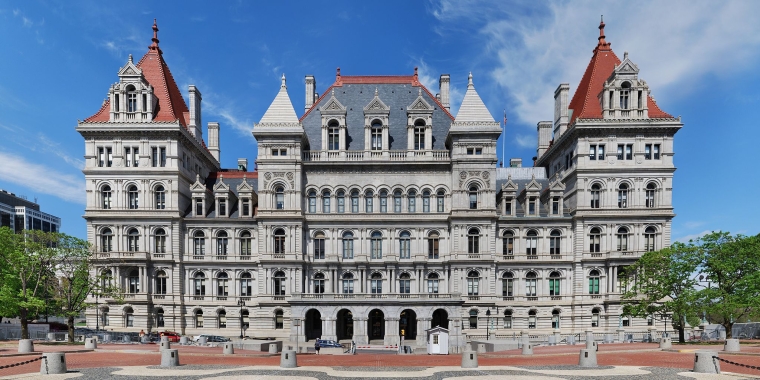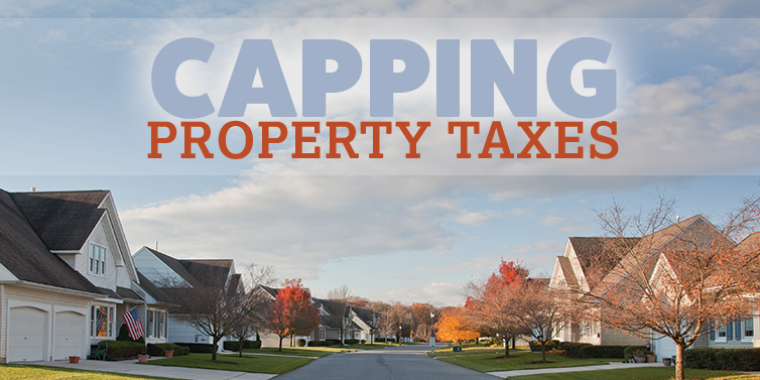
Leading Business And Taxpayer Advocacy Organizations Join Senator Flanagan’s Push To Make New York’s Property Tax Permanent In 2018
September 26, 2017
-
ISSUE:
- property tax cap

New York’s leading business and taxpayer advocacy organizations today joined Senate Majority Leader John Flanagan’s push to make the state’s highly successful property tax cap permanent next session. The cap, which helps prevent excessive local tax increases, was a signature initiative put forth by the Senate Republican Conference in 2011.
Since it was enacted, the property tax cap has saved taxpayers $23 billion. In addition, by adhering to a self-imposed two-percent spending cap, the Legislature and Governor have saved taxpayers $41 billion.
Two years ago, the Senate led the fight to renew the property tax cap for an additional four years, but the possibility exists that a future Legislature could undo the measure and soak property taxpayers with new and higher taxes.
Senator Flanagan said, “Business leaders know that excessive spending and high taxes take a toll on their bottom lines and our economy, which is why they continue to support the need for a permanent statewide tax cap. Working with them, we can help continue to prevent the double-digit property tax increases of the past, make New York more affordable for all taxpayers, and create more job opportunities so middle-class families can have a brighter and more prosperous future.”
“Since first enacted in 2011, the property tax cap has saved state taxpayers tens of billions of dollars and allowed businesses to use those savings to grow and reinvest in their workforce,” said Heather C. Briccetti, Esq., President and CEO of The Business Council of New York State, Inc. “We were proud to lead the fight when it was first passed and we’re ready to join our friends in the Senate Majority in making it permanent. Property taxes are the largest single tax paid by our state’s businesses. Capping taxes and curbing growth has saved those businesses billions of dollars over the past six years. It is essential we maintain the cap and the detailed provisions which have made it so successful. We thank Leader Flanagan for highlighting this issue and we look forward to seeing it passed next year.”
Mike Durant, New York State Director of the National Federation of Independent Businesses, said, “The tax cap is a proven mechanism to rein in New York’s significant property tax burden. Small business owners strongly supported its enactment and now want the clarity and predictability a permanent property tax cap would provide. We applaud Leader Flanagan and his colleagues in the Senate Republican Conference for making this issue a priority in 2018 and look forward to working with them to make this a reality.”
Greg Biryla, Executive Director of Unshackle Upstate, said, “Making New York State’s property tax cap permanent is a no-brainer. The cap has saved taxpayers billions of dollars in local property taxes since its inception and provided financial predictability for homeowners and commercial property taxpayers alike. An overwhelming majority of local governments and school districts have managed to stay under the cap since 2011, further demonstrating its success. We look forward to working with the Majority Leader Flanagan and his legislative colleagues to make the cap permanent in 2018. We also hope to help enact meaningful relief from the unfunded state mandates that keep New Yorkers’ property tax bills high.”
Making the property tax cap permanent is part of a pro-taxpayer, pro-business agenda that Senator Flanagan first outlined this week in an address to the Business Council. The Senate Majority will also seek to build upon successful measures, such as the enactment of this year’s workers’ compensation reforms, by focusing on other ways to reduce the over-regulation that prevents businesses from growing and creating jobs.
Share this Article or Press Release
Newsroom
Go to NewsroomNew York State Working To Increase Organ Donations
February 14, 2017


New York State Senate Announces Community Heroes Protection Act
February 3, 2017

